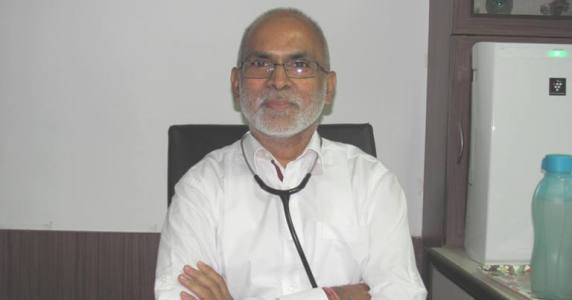Nagpur Today had an exclusive talk with eminent Dr. Satish Deopujari of Child Hospital about the various pressing issues of Hand, foot and mouth diseases among children in recent times.
According to Dr. Deopujari, Hand-foot-and-mouth disease is an illness that causes sores in or on the mouth and on the hands, feet, and sometimes the buttocks and legs. Hand-foot-and-mouth disease is common in children but can also occur in adults. It can occur at any time of year but is most common in the summer and fall.
Hand, foot and mouth disease (HFMD) is a viral infection of children caused by Coxsackie virus-A16, a type of enterovirus closely related with the virus that causes Herpangina. All cases were clinically diagnosed.

Dr. Satish Deopujari
When the reporter asked other pediatricians about this disease, many opined that this is found in random pockets and as low as one or two in a year. They also said that it is not an epidemic. This is found in Summers and Autumn.
Symptoms of this disease are fever, fatigue, malaise, and sore throat, ulcers in mouth and foot, headache, back pain.
Complications from the viral infections that causes HFMD are uncommon, but require immediate medical treatment should they occur. Generally, parents get very conscious about this disease but according to the Dr. Deopujari there are very few complications and very rare serious cases.
Precautions that should be taken are proper hand wash and maintain cleanliness. Also, infection in older children, adolescents, and adults is typically mild and lasts approximately 1 week, but may occasionally run a longer course. Fever reducers and lukewarm baths can help decrease body temperature.
Only a very small minority of people require hospital admission, mainly as a result of Uncommon Neurological Complications (Encephalitis, Meningitis, or Acute Flaccid Paralysis) or other complications such as Myocarditis, Pulmonary Edema, or Pulmonary Hemorrhage.
No vaccine currently exists to protect individuals from infection by the viruses that cause HFMD, but such vaccines are being developed. Since HFMD is highly contagious and is transmitted by Oropharyngeal secretions such as saliva or nasal mucus, by direct contact, or by fecal-oral transmission, preventive measures include avoiding direct contact with infected individuals (including keeping infected children home from school), proper cleaning of shared utensils, disinfecting contaminated surfaces, and proper hand hygiene. These measures have been shown to be effective in decreasing the transmission of the viruses responsible for HFMD












